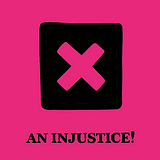4 Ways of Subtle Discrimination Women in Technology Face
4 women open up about the struggles they faced in their technical job — revealing 4 shocking ways of discrimination most men are never…

4 Ways Women in Technology Face Subtle Discrimination
Four women open up about the struggles they faced in their technical job
I work as a faculty of civil engineering in one of the most reputed institutes of India. I got this job because I cleared a super tough examination and was grilled during the interview for ninety minutes by a panel of twenty-two eminent researchers.
That interview was one of the most traumatizing experiences of my life
But this article is not about that. It is about how I had to pass through all these hurdles to reach where I am today and even now, my seniors and colleagues casually dismiss my opinion because I’m a woman. I’ve participated in meetings where older men cut me off mid-sentence because they believe their opinion is worth more than mine.
I’ve sat through professional gatherings where the waiters serve food to the men first and then the women. I’ve been asked to submit research papers in conferences with the assurance that, “They want women representatives. Yours will get accepted for sure.”
There’ve been instances when a male colleague and I made a similar error. His mistake was forgiven and passed off as “normal”. But when it came to me, all the seniors grinned at each other and said “Women are so careless. They often have other things on their mind and never fully into their jobs.”
I was so hurt by this casual misogyny that I wanted to scream and tell them exactly why and how they were wrong. But I was too, shall I say tamed by years of conditioning that you don’t speak up against powerful older men. So I shut up and gulped my pride.
I chose to show them with my work not my words that I’m worthy of their respect
In every project I completed since then, I’ve worked twice as hard to ensure such errors never repeat. It’s been a bumpy ride and people still consider me more as a decoration than someone actually adding value to my job. It’s frustrating and wrong, and I want it to stop.
But it also got me wondering, is it just me? Or does every woman in technology go through so many hurdles before she can finally get people to respect her for the value she brings to the table and not dismiss her because of her gender?
I talked to three women from different walks of life about their experiences. The stories they shared were heart-breaking. But the message in their words and the way they have established themselves is inspiring.
Read on for an honest take about what it takes to be a woman in technology, all the things that are currently wrong with the system, and what we can do to get over it.
I was too tamed by years of conditioning that you don’t speak up against powerful older men, that I shut up and gulped my pride.
I had to prove my worth first
A few days ago, I had a chance to speak with Debanjana Gupta, the Deputy Superintending Surveyor at Survey of India. Being in one of the highest-paid and most-reputed government jobs in India, I asked about her experience as a woman officer and if there was any way she felt she was discriminated against based on her gender.
Debanjana said that there was enough support from the government when it came to helping female employees balance their work and life. But when it comes to the mentality of her male colleagues, there’s a lot that needs to be changed.
Her sub-ordinates, who have more years in the service than her current age, find it difficult to come and report to her. They are not ready to listen to such a young woman, even when she outranks them. She struggled to prove that she deserved to be there. That her rank meant much more than the fact that she simply cleared an examination.
“I had to prove my worth before I was entrusted any responsibility. I had to convince my seniors that you can trust me to do this job as good as my male counterparts, or even better than them.”
Initially Debanjana thought that every new employee was treated with the same distrust. But later she realized that her male colleagues could command respect simply based on their gender. When it came to her, people had this inherent reluctance to follow her orders or even report to her.
When it comes to the mentality of her male colleagues, there’s a lot that needs to be changed.
Female freelancers think twice before quoting a high price
For my second interview, I talked to Shreya Badonia, a writer, podcaster, YouTuber, freelancer and designer. Shreya told me she’s never faced any discrimination based on her gender, but she found her female friends struggling to ask for a fair price for their services, while men never consider this to be an issue.
“I think men have it easier because they are more vocal about what they want. Women are not. When men get a freelance project, they don’t hesitate about asking how much they want. But women always sell themselves short. I don’t think this is because of gender inequality but because women are not used to asking for how much they deserve. That’s the mindset of women that needs to change.”
In a country like India, we are always told that a woman’s needs and wants are not valid. Their strength is measured by how much they can endure, not how boldly they can speak up. To think that this age-old patriarchal conditioning has seeped into the world of freelancing is heartbreaking.
My success is rarely credited to me. It’s always “luck” or some other external factor
I was talking to my female colleague, an assistant professor at one of the most reputed engineering colleges in India, about what it means to get a research paper published in a reputed journal. She was excited about her success. When I asked her about the reactions from her male colleagues, she made a face and told me how her success was always attributed to some external factor or kind reviewers, or easy journal acceptance policies, never to her brilliance.
She refused to be named for this article but allowed me to share her story. She revealed that during a project-allotment course at the college, many students chose to be mentored by her, even though several older and more experienced male colleagues were available for mentorship.
She was happy at being given this opportunity, but when she talked about this to her male colleagues, they told her this is because she is lenient in the examinations and gives good marks to the students. That’s why they chose to be mentored by her.
Once again, men conveniently chose to ignore that she might be getting laurels because of her talent and hard work. The fact that students prefer her guidance over a man’s was attributed to her giving more marks in the exams (which is completely untrue, according to my friend).
We don’t want you to look at our intellect and achievements in a different light because of our gender
When I talk to my male friends about feminism, it saddens me that their concept of feminism extends to women wanting the freedom to wear short or revealing clothes. Sure, it’s an aspect of feminism, especially for the upper-middle-class women living in urban areas, but it’s not the only aim of feminism.
Fair treatment is all we ask. We don’t want to bash men. We don’t want to take away their power. We don’t only want the freedom to wear whatever we want.
We want you to respect us as humans. We don’t want you to look at our intellect and achievements in a different light because of our gender. We want you to treat our ideas with the same seriousness as you’d treat them if we were men.
In short, we want you to stop treating our existence as decorations and accept us as contributing members of the society. Is that too much to ask?


I create content in many different forms related to self-improvement, body-positivity, and feminism on several other platforms. Join my email list to make sure you don’t miss out on anything new.

